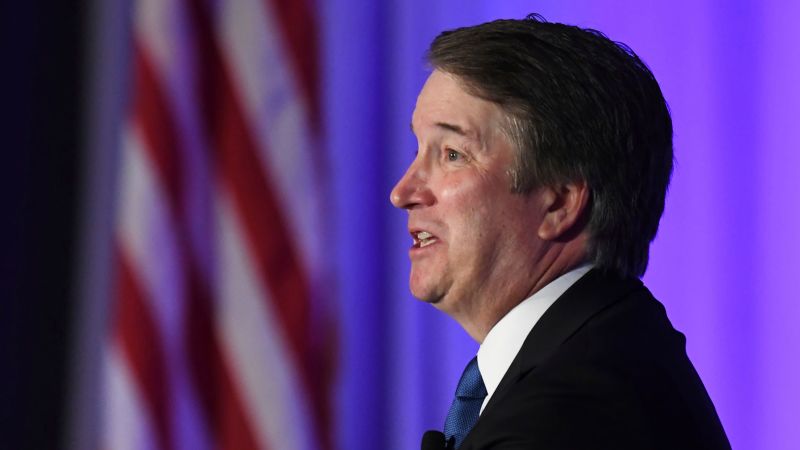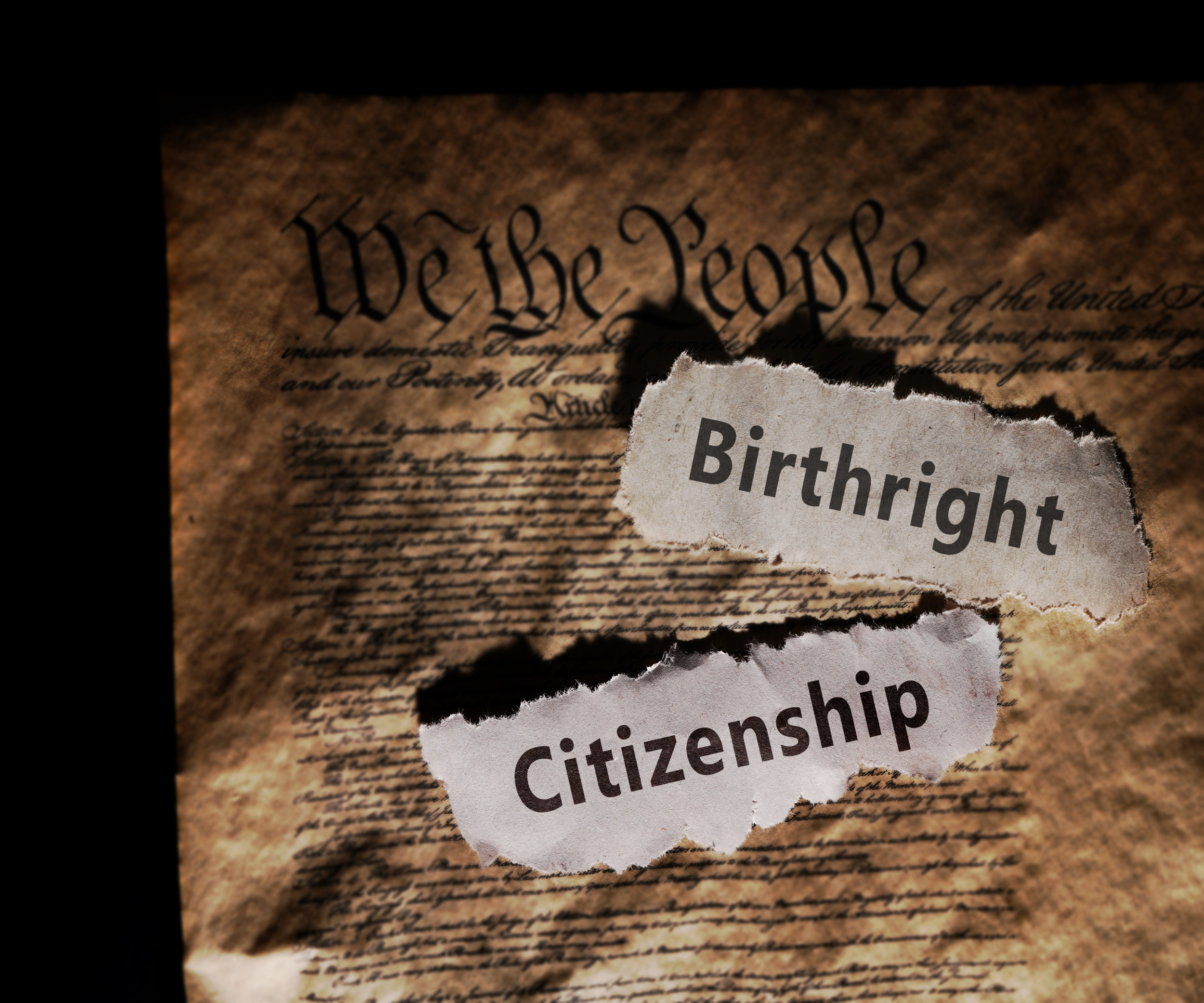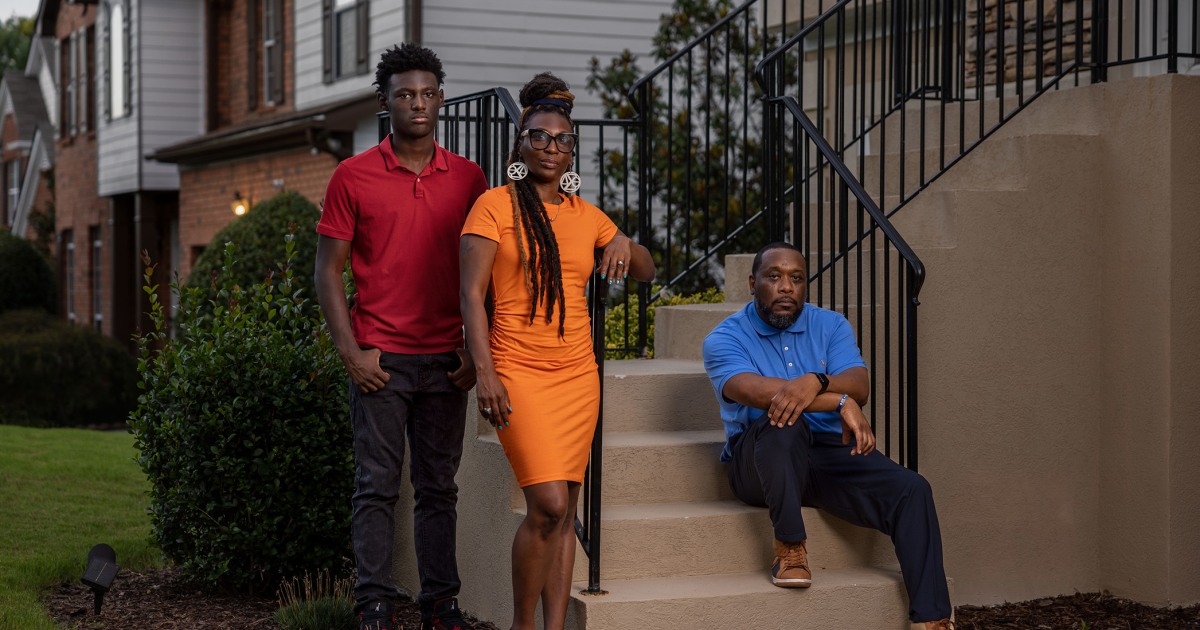Justice Brett Kavanaugh’s breezy suggestion this week that Americans who are roughed up by ICE can sue agents in federal court is drawing pushback from civil rights attorneys who note the Supreme Court’s conservative majority has in recent years made those cases nearly impossible to win.
Writing to explain the court’s emergency ruling Monday that allowed the Trump administration to continue “roving” immigration patrols in Southern California, Kavanaugh brushed aside concerns that masked ICE agents had pushed, shoved and detained Hispanics – in one instance throwing a US citizen against a fence and confiscating his phone.
“To the extent that excessive force has been used,” Kavanaugh wrote in a 10-page concurrence, “the Fourth Amendment prohibits such action, and remedies should be available in federal court.”
But in a series of recent decisions – including two that involved incidents at the border – the Supreme Court has severely limited the ability of people to sue federal law enforcement officers for excessive force claims. Kavanaugh, who was nominated to the court by Trump during his first term, was in the majority in those decisions.
“It’s bordering on impossible to get any sort of remedy in a federal court when a federal officer violates federal rights,” said Patrick Jaicomo, a senior attorney at the libertarian Institute for Justice who has regularly represented clients suing federal agents.
Lauren Bonds, executive director of the National Police Accountability Project, said that it can be incredibly difficult for a person subjected to excessive force to find an attorney and take on the federal government in court.
“What we’ve seen is, term after term, the court limiting the avenues that people have available to sue the federal government,” Bonds told CNN.
Sotomayor dissents
To stop a person on the street for questioning, immigration officials must have a “reasonable suspicion” that the person is in the country illegally. The question for the Supreme Court was whether an agent could rely on factors like a person’s apparent ethnicity, language or their presence at a particular location, to establish reasonable suspicion.
A US district court in July ordered the Department of Homeland Security to discontinue the practice of making initial stops based on those factors. The Supreme Court on Monday, without an explanation from the majority, put that lower court order on hold – effectively greenlighting the administration’s approach while the litigation continues in lower courts.
In a sharp dissent, Justice Sonia Sotomayor cited the stories raised by several of the people in Southern California who had been caught up in the crackdown.
“The government, and now the concurrence, has all but declared that all Latinos, US citizens or not, who work low wage jobs are fair game to be seized at any time, taken away from work, and held until they provide proof of their legal status to the agents’ satisfaction,” wrote Sotomayor, joined by fellow liberal Justices Elena Kagan and Ketanji Brown Jackson.
Jason Gavidia, a US citizen, was approached in June by masked agents who repeatedly questioned his citizenship status, pressing him to name the hospital in which he was born, according to court records. When he could not answer that question, he said, agents racked a rifle, took his phone and pushed him up against a metal fence.
He was later released.
Another US citizen, Jorge Viramontes, was grabbed and escorted by agents into a vehicle and held in a “warehouse area” for further questioning, according to court documents.
Richard Re, a Harvard Law professor, viewed Kavanaugh’s remark in the opinion differently. Maybe, Re wrote on Tuesday, Kavanaugh was attempting to signal something about where he thinks the law should go.
“When you have an important sentence that’s very ambiguous, it’s usually deliberately so,” Re, who clerked for Kavanaugh when he was an appeals court judge, told CNN.
“I think it’s not clear what to make of that remark,” Re said. “It could suggest a genuine interest, on at least one pivotal justice’s part, in revitalizing Fourth Amendment remediation.”
Limited recourse
The court has for years been limiting the ability of people who face excessive force to sue federal agents, litigation that proponents say can act as a check on such behavior.
In 2020, the court’s conservative majority blocked a damages lawsuit from the family of a 15-year-old Mexican boy who was shot and killed across the border by a Border Patrol agent.
Three years ago, the court similarly rejected a suit from a US citizen who owned a bed and breakfast near the Canadian border and who said he was pushed to the ground as Border Patrol agents questioned a guest about their immigration status.
Lawsuits against federal police are controlled by a 1971 precedent, Bivens v.
Six Unknown Named Agents, that involved federal drug agents who searched the home of a man without a warrant. The Supreme Court allowed that lawsuit, but in recent years it has significantly clamped down on the ability of people to file suits in any other circumstance besides the warrant involved in the Bivens case. The right to sue federal agents, the court has maintained, should be set by Congress, not the courts.Americans may also sue the government for damages under the Federal Tort Claims Act, if its employees engage in wrongdoing or negligence. But federal courts have carved out a complicated patchwork of exceptions to that law as well. Earlier this year, in a case involving an FBI raid on the wrong house, a unanimous Supreme Court allowed the family to sue, but also limited the scope of a provision of the law that was aimed at protecting people who are harmed by federal law enforcement.
The tort law, Bonds said, is “incredibly narrow, incredibly complex and definitely not a sure thing.”
‘Shadow docket’ criticism
Kavanaugh’s opinion came as the court has faced sharp criticism in some quarters for deciding a slew of emergency cases in Trump’s favor without any explanation.
The Supreme Court has consistently sided with Trump recently, overturning lower courts’ temporary orders and allowing the president to fire the leadership of independent agencies, cut spending authorized by Congress and pursue an aggressive crackdown on immigration while litigation continues in lower courts.
Those emergency cases don’t fully resolve the legal questions at hand – and the court is often hesitant to write opinions that could influence the final outcome of a case – but they can have enormous, real-world consequences.
Emergency cases are almost always handled without oral argument and are addressed on a much tighter deadline than the court’s regular merits cases.
In that sense, Kavanaugh’s opinion provided some clarity about how at least one member of the court’s majority viewed the ICE patrols.
He noted Sotomayor’s dissent and pointed out that the issue of excessive force was not involved in the case.
“The Fourth Amendment’s reasonableness standard continues to govern the officers’ use of force and to prohibit excessive force,” Kavanaugh said.
What he didn’t explain, several experts note, is how a violation of those rights could be vindicated.
“Sincerely wondering,” University of Chicago law professor William Baude posted on social media, “what remedies does Justice Kavanaugh believe are and should be available in federal court these days for excessive force violations by federal immigration officials?”

https://www.cnn.com/2025/09/10/politics/kavanaugh-blowback-ice




